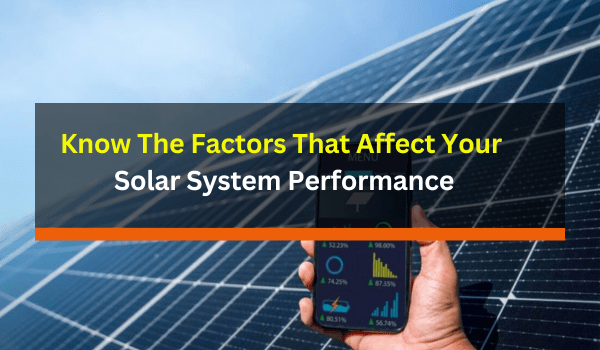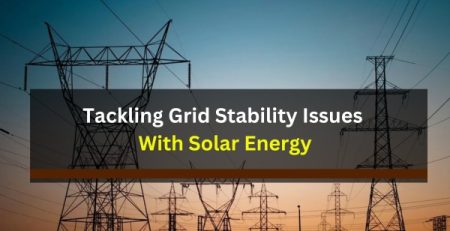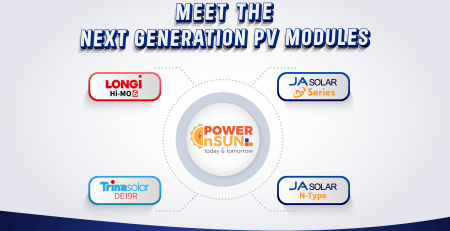30Jul
EMAIL US NOW
info@powernsun.com
- Home
- Blogs
- Uncategorized
- Know The Factors That Affect Your Solar System Performance
info@powernsun.com

Even though switching to solar is a lucrative choice, yet, it is still a big investment. Hence, it is important that the installers are aware of all aspects that improve the efficiency of a solar system. However, it is similarly important to know the factors that prevent your solar system from getting the maximum efficiency and obtaining a better return on investment.
There are certain factors that probably can affect the solar system’s performance. Taking into account these parameters can ensure the optimal performance of the system and take corrective actions to prevent potential issues.
Solar panel efficiency can be defined as the average energy output of a specified area. To make it simple, the overall energy produced by solar panels is their efficiency. Typically, by using standard test conditions and at normal weather conditions, in a certain area, the output of solar panels can be measured.
Let us look deep into the various factors that contribute to the performance of the solar system.
Extreme weather conditions can leave an impact on the solar system’s performance. Generally, solar cells can yield their best if exposed to specific temperature ranges. Panels can generate more electricity in colder climate conditions. Since cool temperatures avoid the risk of damage due to heat, solar panels can work more effectively.
Simply, the higher the temperature is the lower the solar panels’ output.

Shading is another factor that has a great influence on the amount of solar energy and the overall capacity of the system. Shading can reduce the efficiency of the system by up to 50%. If shading is a consistent issue and blocks the sun’s rays, this results in the reduced ROI of the system.
Partial shading due to nearby objects like trees, buildings, or antennas can block solar modules and reduce their efficiency level.
Solar panels of a system are made up of solar cells and in turn, the solar cells are made of various materials. The efficiency of solar cells is determined by the materials that they are used to make. Typically, mono panels are said to have the highest efficiency but are a bit more expensive than polycrystalline panels.
The cleanliness of the surface of the solar system also impacts the solar power conversion rate. Polluted environments such as dust, debris, rainfall, snow, and sandstorms are some of the factors that can reduce the performance of the solar system.
Installing a solar system where it is ensured to have optimal solar radiation will make it perform at its best. The locations that receive plenty of sunlight throughout the year can cater to the efficiency of the system.
The relationship between the radiance and the solar system performance is directly connected. If the location gets less sunlight, the system will produce less power.
The orientation of solar panels of a system which is referred to as angle or tilt can also affect the overall performance. Tilted panels can perform well whereas panels that are flat to the ground will not facilitate the performance of the system.
The optimal solar panel installation is estimated to be around 30-40 degrees. North-facing roofs contribute to the cause of inefficient solar systems. However, the optimal solar angle can vary based on the location, hours of sunlight, latitude, and more.
Regular maintenance of the solar system is very important in deciding the performance of it. If there are no regular checks and preventive maintenance schedules are ensured, the efficiency of the system will degrade over time.
Solar energy is becoming a cost-effective alternative source. Still, it is essential to understand the various factors that could hinder solar power system performance. Powernsun with its vast portfolio can ensure your system is functioning at its best and you get real value from your investment.
 October 21, 2023
October 21, 2023
 March 31, 2023
March 31, 2023
WhatsApp us